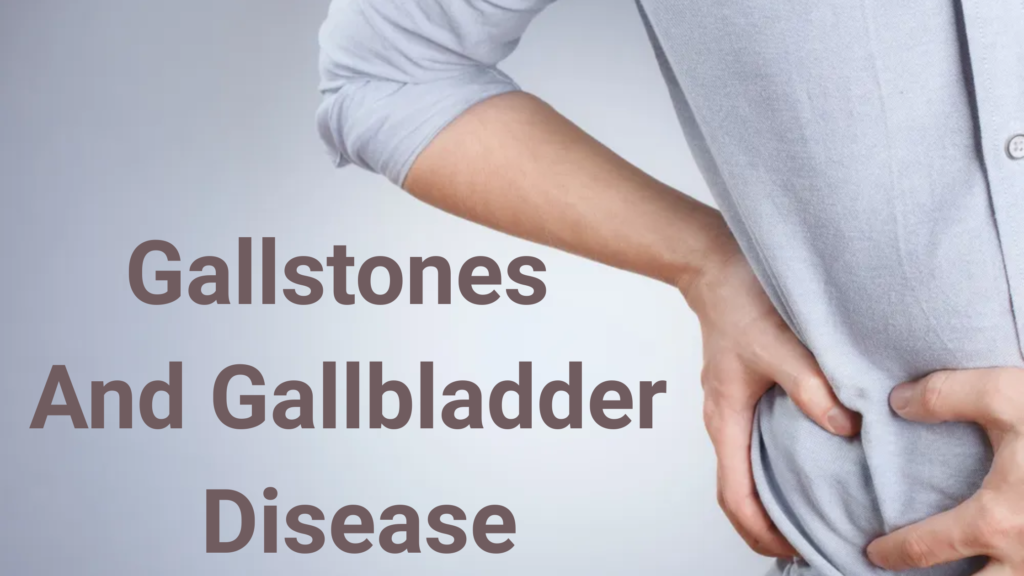🟤 Gallstones and Gallbladder Disease
Gallstones are hardened deposits of digestive fluid (bile) that form in the gallbladder, a small organ under the liver that stores bile. Gallbladder disease refers to conditions affecting the gallbladder, often caused by gallstones.
🔍 Causes
- Imbalance in bile components (cholesterol, bile salts, bilirubin)
- Gallbladder doesn’t empty properly
- Risk factors include:
- Obesity
- High-fat diet
- Rapid weight loss
- Pregnancy
- Family history
- Certain medical conditions (e.g., diabetes, liver disease)
⚠️ Symptoms
- Gallstones may be asymptomatic (silent)
- Pain in the upper right abdomen or center abdomen, especially after fatty meals (biliary colic)
- Nausea and vomiting
- Jaundice (yellowing of skin/eyes) if stones block bile ducts
- Fever and chills (if infection develops – cholecystitis)
- Clay-colored stools and dark urine
🩺 Common Gallbladder Diseases
- Cholelithiasis: Presence of gallstones
- Cholecystitis: Inflammation of the gallbladder, often due to stones blocking the cystic duct
- Choledocholithiasis: Gallstones in the common bile duct
- Gallbladder cancer (rare)
🧪 Diagnosis
- Ultrasound (most common)
- Blood tests (liver function tests, white blood cell count)
- CT scan or MRI if needed
- ERCP (Endoscopic Retrograde Cholangiopancreatography) for bile duct stones
🛠️ Treatment
- Asymptomatic gallstones: Often no treatment needed
- Symptomatic gallstones/cholecystitis:
- Pain management and antibiotics if infection present
- Surgical removal of the gallbladder (cholecystectomy) – often laparoscopic
- Bile duct stones: Removed by ERCP
🛡️ Prevention Tips
- Maintain healthy weight
- Balanced diet low in saturated fats and cholesterol
- Regular physical activity
- Avoid rapid weight loss
